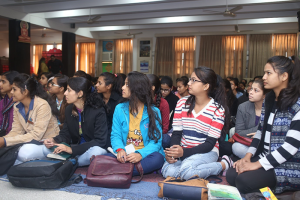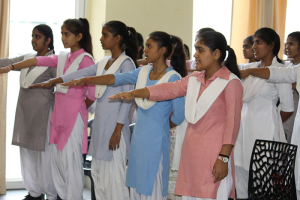Ever wondered why the advertisements for kitchen appliances are mainly centered on women who play the roles of mothers and wives? It is because society has prescribed specific roles for both men and women. While men are supposed to be the breadwinners, women are supposed to be docile homemakers.
Such discourse leads to disparities in educational opportunities and financial inclusion between men and women. This gap increases more for the underprivileged sections of society. While women work tirelessly in homes, it is unpaid labour masked behind the idea of ‘duty’.

Financial challenges faced by Indian women
Women start experiencing discrimination from a young age, be it in homes where girls are supposed to help with the housework, in schools where some sports are accessible to boys only, or on streets where they are stalked and harassed.
Growing up in such a marginalized scenario leads to acceptance of it as the norm. Women either do not pursue skill-based education or give up their jobs as they are supposed to adopt the role of primary caregiver in the family. Women’s participation in the labour force is distressingly low, amounting to 23.4%. Even when they work, they are paid less than their male counterparts.
There is a stark gender pay gap in India. A report published in 2017, in India Responsible Business Forum stated that women get paid 27% less than men. Women are paid less for the same amount of time and effort due to an extensive focus on gender roles where they belong to a domestic space rather than a commercial workforce.
Women belonging to the underprivileged sections are doubly marginalized and face additional obstacles in achieving financial independence. They do not have the resources to educate themselves or gain employable skills. Even if they wish to start their own businesses they require a sufficient investment first.
As per a recent report, only 13% of women participate in small businesses. It is the result of various gender biases at play. Women face huge obstacles in getting access to finance. Their loan applications get rejected while facing hindrances such as social mobility restrictions.
India ranks 3rd among the countries reporting gender gaps in business. Only 7 in 100 Indian women get into entrepreneurship – out of which nearly 50% do it because of necessity rather than aspirations. As per the IFC report of 2019, nearly 70% of loan applications of women end up getting rejected. It is one of the many constraints women face while pursuing their entrepreneurial dreams.

What are the solutions?
While the challenges faced by women on daily basis are non-exhaustive, we have to talk about the solutions. A gender-responsive education policy is the need of the hour. Women need employable skills to empower and enable them to face financial challenges in India.
There are several NGOs for women in India who work in this direction. One such NGO is Udayan Care – a charitable trust established in 1994. It promotes financial independence for women in India through its Udayan Shalini Fellowship Programme (USF) offering scholarships to girls from underprivileged backgrounds.
True liberty for a woman comes from the ability to make financial decisions for her life and that is what USF works to achieve. It is unlike any other scholarship program offered by NGOs for women in India. It not only provides financial assistance but also employability skills, psychological counselling, and mentorship to young girls.
Skill development has emerged as one of the most important features of financial independence. A person is offered working opportunities based on his/her skill set. India has a grave deficiency of skilled youth who are employable. Many young people are unable to avail any technical or professional skills as they are marginalized based on their gender, caste, or class.
At Udayan Care women are trained in various employable skills through Udayan Care Information Technology (UCIT) training centres where girls are taught graphic/print designs, accounting, and technical and vocational skills. The organization also has Skill Development Centres where underprivileged women are trained in different skills to enable them to generate income or become financially independent.
While we need governmental schemes to facilitate the financial independence of women, initiatives like USF and UCIT are instrumental in empowering them. Such women-centric programmes are pivotal to the overall upliftment of women.




